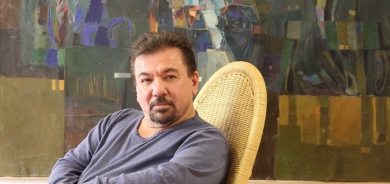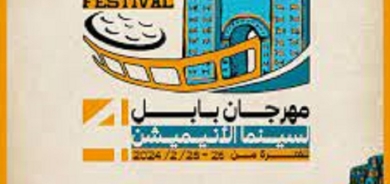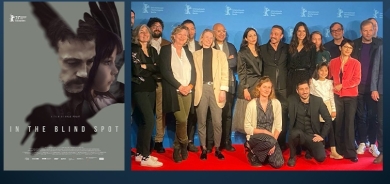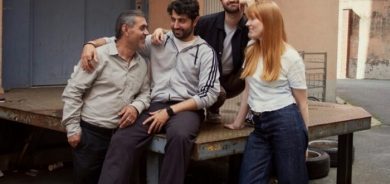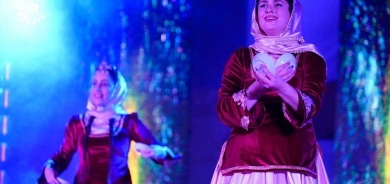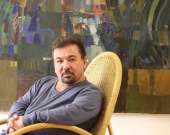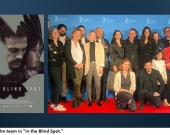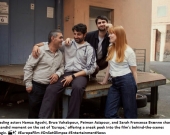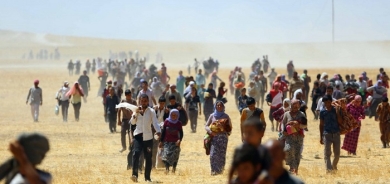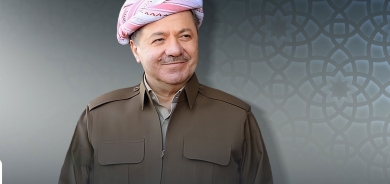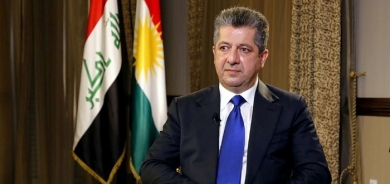Nazis and nymphomaniacs to take Berlin Film Festival
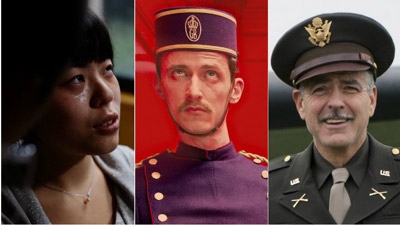
An eleven-day movie marathon that hits the German capital every bitterly cold February, the Berlinale, as it’s often called, indeed fills an awkward slot on the cinema calendar: many of the most exciting US “indies” premiere just weeks earlier at Sundance, while heavyweight European and Asian auteurs hold out for Cannes, which takes place just a few months later.
Still, if it lacks some of the prestige of Cannes or Venice, and certainly their sun-kissed glamour, Berlin has recently launched a handful of bona fide critical sensations, including Roman Polanski’s “The Ghost Writer” (2010), Asghar Farhadi’s “A Separation” (2011), Christian Petzold’s “Barbara” and Miguel Gomes’s “Tabu” (both 2012).
New works from Wes Anderson, Alain Resnais
So which of this year’s competition titles is most likely to garner that kind of near-universal acclaim?
The biggest names vying for the top Golden Bear prize are: US filmmaker Wes Anderson, whose “The Grand Budapest Hotel” will open the festival February 6 and features a high-profile ensemble (Ralph Fiennes, Adrien Brody, Tilda Swinton, Léa Seydoux, Jude Law and others) in the story of a 1920s hotel concierge and his relationships with various employees and guests; 91-year-old French legend Alain Resnais, who will present “Life of Riley” (“Aimer, boire et chanter”), an ensemble piece about a group of friends who learn that one of their own only has a few months left to live; and American director Richard Linklater, whose coming-of-age tale “Boyhood” was shot over twelve years with the same actors (including Ethan Hawke and Patricia Arquette) and was rapturously received at Sundance this year.
One of the more unusual-sounding competition entries comes from French Algerian director Rachid Bouchareb, who has become a fixture on the international festival scene (he brought cross-cultural bonding drama “London River” to Berlin in 2009, and square historical epics “Days of Glory” and “Outside the Law” to Cannes in 2006 and 2010) even as support from critics has eluded him. His new movie, “Two Men in Town”, was adapted from a 1973 French film that Bouchareb re-set in small-town Texas and stars Forest Whitaker as a former criminal and recent convert to Islam who struggles to adjust to life outside prison.
Another of the more eagerly anticipated works will likely be Chinese director Lou Ye’s “Blind Massage”, which revolves around blind massage therapists. Lou’s gay-themed “Spring Fever” won the Best Screenplay prize at Cannes in 2009.
Lou is one of three Chinese filmmakers selected this year, alongside Ning Hao, whose “No Man’s Land” is described as a modern western that takes place in the rugged Xinjiang province, and Diao Yinan, who will present noir-ish crime thriller “Black Coal, Thin Ice”.
Re-examining Nazism and the Holocaust
Founded in West Berlin in 1951 by Oscar Martay, the “film officer” for the US army in Germany, the Berlin Film Festival was initially intended as a “showcase for the free world”.
Since then, it has maintained a strong political flavour, as evidenced by several of this year’s competition selections, which include films about the early years of “The Troubles” in Northern Ireland (Yann Demange’s “’71’”), Japan during World War II (Yoji Yamada’s “The Little House”), Argentina’s past economic woes (Benjamin Naishtat’s “History of Fear”), religious extremism (Dietrich Brüggemann’s “Stations of the Cross”), Chechen refugees (Sudabeh Mortezai’s “Macondo”) and German soldiers in Afghanistan (Feo Aladag’s “In-Between Worlds”).
Outside the main competition, one of the most striking themes of this year’s edition of the festival is Germany’s own tortured past.
“We have a programme that looks back at German history in the 30s and 40s and the Holocaust,” festival director Dieter Kosslick told reporters last week. “That wasn’t by design, but there just happened to be a number of good films on the subject on offer.”
Those include German director Volker Schloendorff’s “Diplomacy”, a drama centering on the Germans’ decision not to destroy Paris during World War II; “The Decent One”, an Israeli documentary about the discovery of the personal writings and photos of Hitler’s right-hand man, Heinrich Himmler; and George Clooney’s “The Monuments Men” (headlined by Clooney, Matt Damon, Cate Blanchett and Jean Dujardin), based on the true story of a team of art experts on a mission to prevent Nazis from destroying great works of art.
‘Nymphomaniac’, uncensored
That film will give the Berlinale a shot of star power, as will two other out-of-competition screenings: “A Long Way Down”, featuring Pierce Brosnan, Toni Collette, Imogen Poots and “Breaking Bad”’s Aaron Paul in an adaptation of a Nick Hornby novel about suicidal Londoners who become friends; and “The Two Faces of January”, an erotically charged thriller in which Kirsten Dunst, Viggo Mortensen and Oscar Isaac (of “Inside Llewyn Davis”) play an American couple and their con artist tour guide travelling around Greece.
Another much discussed world premiere is certain to be the “director’s cut” of Lars von Trier’s “Nymphomaniac: Volume 1”, with Charlotte Gainsbourg, Stacy Martin and Shia LaBeouf in the story of a sex addict.
A shorter version of the film was released in various European cities last month, but those curious to glimpse a more graphic iteration of the controversial Danish director’s latest will be queuing up.
The rest of us won't have trouble finding something else to see.
France24

